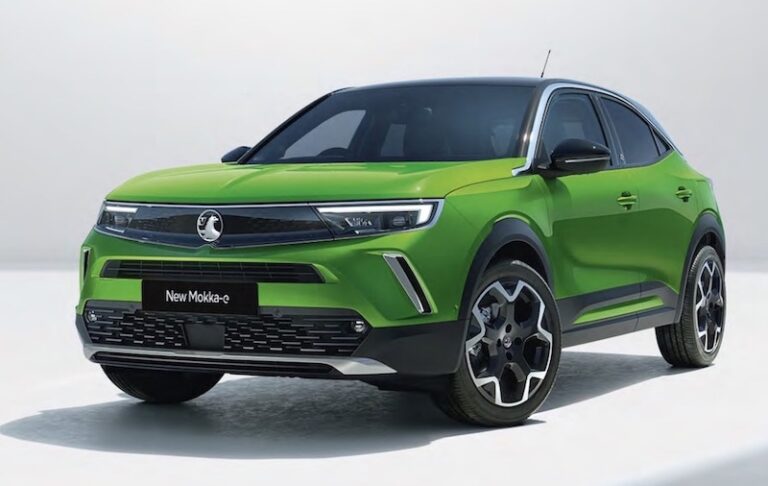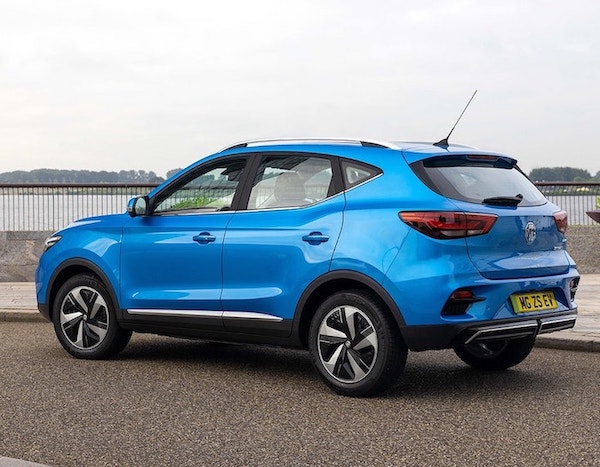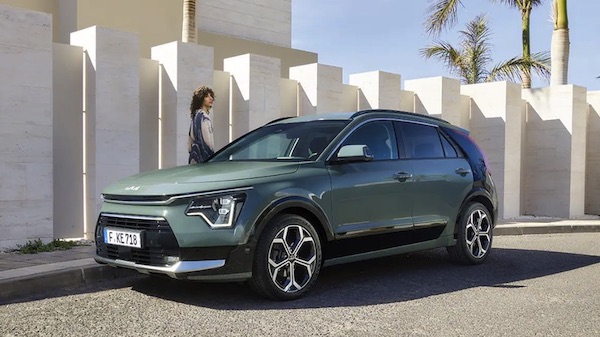Overview
Nissan Motor Corporation, a leading player in the global automotive sector is headquartered in Yokohama, Japan. The company is well known for leading automotive brands, to include: Nissan, Infiniti and Datsun. In 1999, Nissan became part of the global Renault-Nissan-Mitsubishi alliance, a partnership between France headquartered Renault and Japan’s Mitsubishi and Nissan. In December 2024, Nissan announced an MoU with Honda, the Japanese automotive manufacturer, to merge the companies (making it the 3rd largest automotive company by sales). Mitsubishi Motors, in which Nissan has a 24% stake will also participate in the merger. Nissan currently retains a strong presence in a number of global markets. Some of these include: North America, China, Russia and Mexico.
Nissan launched its first battery-electric vehicle (BEV), the Nissan Altra in 1997. In 2020, the company launched the best-selling all-electric Nissan Leaf. The Leaf BEV’s role in the development of the modern electric car industry has been significant. By 2014, the Leaf electric had a 45% market share of the global EV market, selling over 100,000 units. The company currently has the following battery-electric vehicles (BEVs) and plug-in hybrid electric vehicles (PHEVs):
- All-electric Nissan Leaf
- All-electric Nissan Ariya
Electric Cars: The Basics
For those of you new to zero-emission electric driving, we recommend a read of the following articles:
Sign up to the e-zoomed Electric Living newsletter
The All-Electric Nissan Ariya SUV
The all-electric ARIYA crossover SUV, is a new electric vehicle (EV) from the Japanese automotive manufacturer. It is the first all-electric SUV from Nissan. The Nissan ARIYA electric SUV was unveiled at the 2019 Tokyo Motor Show.
The mid-sized concept EV crossover is an expansion from the IMx concept unveiled in the 2017 Tokyo Motor Show (IM is the title Nissan uses for future-thinking self-driving and EV propulsion ideas). The Ariya does not use the IM nomenclature. Despite the automotive manufacturers incredible success with the all-electric Nissan Leaf, it took Nissan a decade to launch its second pure electric family car. Nevertheless, it has been worth the wait!
The coupe styled Nissan Ariya electric is available in two EV battery sizes, and as a front-wheel drive and all-wheel drive variant. Fantastic, as this increases the broader appeal of the Nissan EV to a larger consumer base. The smaller EV battery (63 kWh) variant is only available as a front-wheel drive.
In terms of practical emission-free electric range, both EV battery sizes have much to offer, depending on the commuting needs of the family or company-car driver. The 63 kWh EV battery has an electric range up to 250 miles (WLTP), while the 87 kWh has a claimed e-range up to 329 miles (WLTP). Even adjusting for real-world driving conditions, both options remain useful! For the 63 kWh expect a real-world range closer to 215 miles, while for the larger EV battery, 280 miles will be more realistic. More than adequate for city and longer distance motorway driving.
The Nissan Ariya EV incorporates a single-phase (7.4 KW AC) onboard charger for the smaller EV battery and a 3-phase 22 KW AC onboard charger for the larger EV battery. It is certainly logical, as the larger an EV battery, the faster the charging capability, the better! However, given that the majority of homes have single-phase power supply in the UK, taking advantage of the 22 kW onboard charger will be only for those with access to three-phase EV charging at home, work or at a public destination.
The 63 kWh EV can be fully charged (single-phase) in 10 hours using a dedicated residential EV charger like easee. The 87 kWh can be full charged in 13 hours and 30 minutes using single-phase charging. At three-phase EV charging, the larger battery can be fully charged in 5 hours. Though the Nissan electric car can be charged via a domestic 3-PIN socket, we at e-zoomed discourage the use of a domestic socket to charge an electric car.
We at e-zoomed recommend charging overnight when the electricity prices are lower. We also recommend charging on a regular basis. This way charging times are reduced and regular charging is good for the long-term maintenance of the onboard EV battery. Nissan offers a 8 years/ 100,000 miles warranty for the EV battery. The Nissan Ariya Crossover also offers DC charging capability. However, DC charging is limited to 130 kW, which is certainly not class-leading. Given the price tag and EV battery size, we would have expected faster DC charging capability. Nevertheless, the Nissan Ariya EV can be charged reasonably fast. For the 63 kWh EV battery it will take up to 35 minutes to charge from 20% to 80%. For the 87 kWh it will take up to 40 minutes.
The exterior coupe styling of the crossover SUV enhances its appeal, in particular for consumers keen on a more futuristic design. The interior is minimalistic, as we now expect to see with most electric cars, with upholstery sympathetic to the environment. According to Nissan ‘in keeping with the Japanese notion of beauty in subtlety, the Ariya concept interior visuals reflect a timeless, modest sensibility’.
The EV also offers a host of safety features, to include: ProPILOT with Navi-Link, intelligent driver alertness, intelligent lane keep assist, intelligent blind spot intervention, 360° digitally enhanced around view monitor with moving object detection, traffic sign recognition and more. Also include is a 12.3” TFT Screen. The EV offers decent practicality, though the rear view is slightly impacted by the more aggressive roofline. The Ariya offers up to 466 L boot space. For the all-wheel drive E-4ORCE, the boot space is smaller.
In terms of performance, the front-wheel drive Nissan Ariya (63 kWh) achieves 0-62 mph in 7.5 seconds (max power: 217 PS/ torque: 300 Nm). The all-wheel drive 87 kWh variant is the fastest. The EV can achieve 0-62 mph in 5.7 seconds (max power: 306 PS/ torque: 600 Nm). The top speed of the EV is between 100 mph and 124 mph, depending on the variant chosen. Of course, the electric car also benefits from instant torque.
Company-car drivers can take advantage of the lower Benefit-in-Kind (BiK-2%) tax charge for pure electric cars. Bottom-line, electric driving is good for the environment and the wallet. You can lease electric vehicles (EVs) via e-zoomed at very competitive prices!
| PROS | CONS |
|---|---|
| Attractive exterior stying | DC charging only up to 130 kW |
| Available in two EV battery options | 22 kW AC onboard charger not standard on all variants |
| Good zero-emission electric range | Higher trim levels expensive. Cheaper alternatives available |
The All-Electric Nissan ARIYA SUV (credit: Nissan)
| At A Glance | |
|---|---|
| EV Type: | Battery-Electric Vehicle (BEV) |
| Body Type: | SUV (Crossover) |
| Plug-In Car Grant (PiCG): | Not Available |
| Engine: | Electric |
| Available In UK: | Yes |
| Variants (6 Options) |
|---|
| Nissan Ariya 63 kWh Advance (from £43,845) |
| Nissan Ariya 63 kWh Evolve (from £47,840) |
| Nissan Ariya 87 kWh Advance (from £49,595) |
| Nissan Ariya 87 kWh Evolve (from £53,590) |
| Nissan Ariya E-4ORCE 87 kWh Advance (from £52,295) |
| Nissan Ariya E-4ORCE 87 kWh Evolve (from £56,290) |
| EV Battery & Emissions | |
|---|---|
| EV Battery Type: | Lithium-ion |
| EV Battery Capacity: | Available in two battery sizes: 63 kWh/ 87 kWh |
| Charging: | 130 kW DC rapid charging. Onboard charger: up to 22 kW AC |
| Charge Port: | Type 2 |
| EV Cable Type: | Type 2 |
| Tailpipe Emissions: | 0g (CO2/km) |
| EV Battery Warranty: | 8 years or 100,000 miles |
| Average Cost Of Residential Charging | |
|---|---|
| Battery net capacity : 16.7 kWh | £2.40 |
| Battery net capacity : 30.0 kWh | £4.32 |
| Battery net capacity : 39.2 kWh | £5.64 |
| Battery net capacity : 45.0 kWh | £6.48 |
| Battery net capacity : 50.0 kWh | £7.20 |
| Battery net capacity : 64.0 kWh | £9.22 |
| Battery net capacity : 71.0 kWh | £10.22 |
| Battery net capacity : 77.0 kWh | £11.09 |
| Battery net capacity : 90.0 kWh | £12.96 |
| Battery net capacity : 100.0 kWh | £14.40 |
- Note 1: The average cost of residential electricity in the UK varies depending on the region, supplier and type of energy used. An average for the UK is 14.40 p/kWh.
- Note 2: Not all EV manufactures make available the data on net EV battery capacity, and in a number of instances the EV battery capacity advertised, does not state if it is gross or net capacity. In general, usable EV battery capacity is between 85% to 95% of the gross available capacity.
| Charging Times (Overview) | |
|---|---|
| Slow charging AC (3 kW – 3.6 kW): | 6 – 12 hours (dependent on size of EV battery & SOC) |
| Fast charging AC (7 kW – 22 kW): | 3 – 8 hours (dependent on size of EV battery & SoC) |
| Rapid charging AC (43 kW): | 0-80%: 20 mins to 60 mins (dependent on size of EV battery & SoC) |
| Rapid charging DC (50 kW+): | 0-80%: 20 mins to 60 mins (dependent on size of EV battery & SoC) |
| Ultra rapid charging DC (150 kW+): | 0-80% : 20 mins to 40 mins (dependent on size of EV battery & SoC) |
| Tesla Supercharger (120 kW – 250 kW): | 0-80%: up to 25 mins (dependent on size of EV battery & SoC) |
- Note 1: SoC: state of charge
| Dimensions | |
|---|---|
| Height (mm): | 1660 |
| Width (mm): | 1850 |
| Length (mm): | 4595 |
| Wheelbase (mm): | 2775 |
| Turning Circle (m): | 10.8 |
| Boot Space (L): | 466 |
| ARIYA 63 kWh | |
|---|---|
| EV Battery Capacity: | 63 kWh |
| Pure Electric Range (WLTP): | 247 – 250 miles |
| Electric Consumption (kWh/100km): | N/A |
| Charging: | 130 kW DC rapid charging (20%-80%: 35 minutes). Onboard charger: 7.4 kW AC (10%-100%: 10 hrs) |
| Top Speed: | 100 mph |
| 0-62 mph: | 7.5 seconds |
| Drive: | Front-wheel drive (FWD) |
| Max Power (PS): | 217 |
| Torque (Nm): | 300 |
| Transmission: | Automatic |
| Seats: | 5 |
| Doors: | 5 |
| Kerb Weight (kg): | 1,900 – 2,200 |
| Colours: | 10 |
| NCAP Safety Rating: | N/A |
| ARIYA 87 kWh | |
|---|---|
| EV Battery Capacity: | 87 kWh |
| Pure Electric Range (WLTP): | 285 – 329 miles |
| Electric Consumption (kWh/100km): | N/A |
| Charging: | 130 kW DC rapid charging (20%-80%: 40 minutes). Onboard charger: 22 kW AC (10%-100%: 5 hrs) |
| Top Speed: | 100 – 124 mph |
| 0-62 mph: | 5.7 – 7.6 seconds |
| Drive: | Front-wheel drive (FWD)/ All-wheel drive (AWD) |
| Max Power (PS): | 242 – 306 |
| Torque (Nm): | 300 – 600 |
| Transmission: | Automatic |
| Seats: | 5 |
| Doors: | 5 |
| Kerb Weight (kg): | 1,900 – 2,200 |
| Colours: | 10 |
| NCAP Safety Rating: | N/A |
While e-zoomed uses reasonable efforts to provide accurate and up-to-date information, some of the information provided is gathered from third parties and has not been independently verified by e-zoomed. While the information from the third party sources is believed to be reliable, no warranty, express or implied, is made by e-zoomed regarding the accuracy, adequacy, completeness, legality, reliability or usefulness of any information. This disclaimer applies to both isolated and aggregate uses of this information.









































